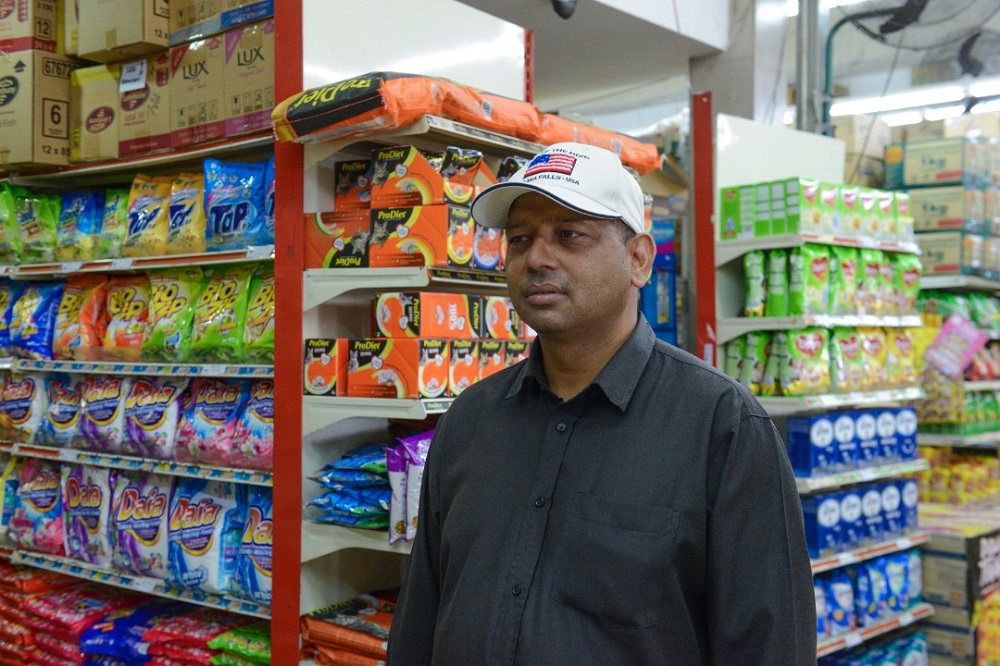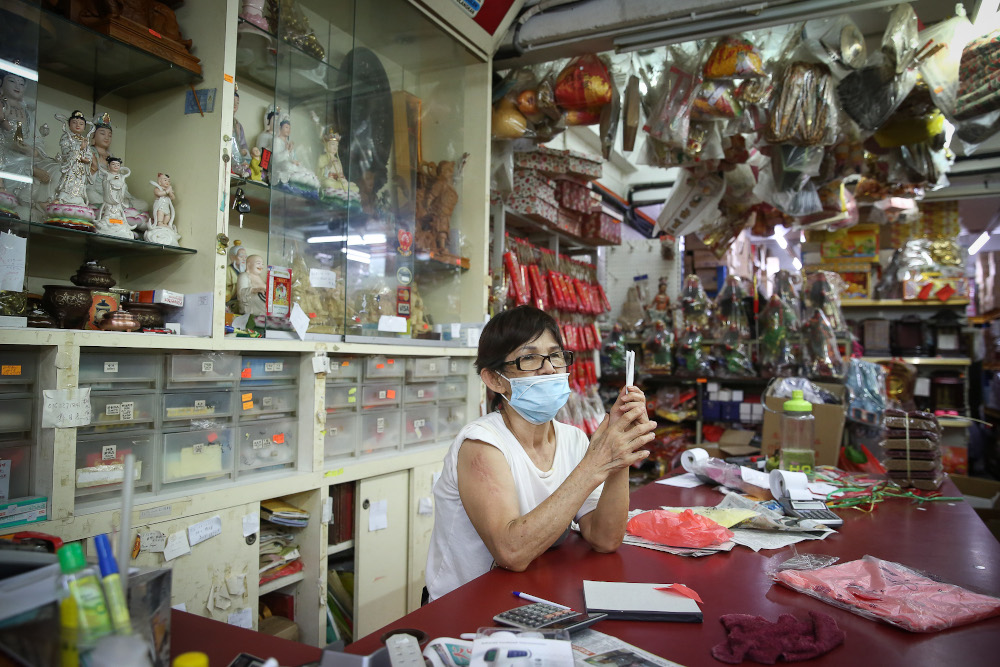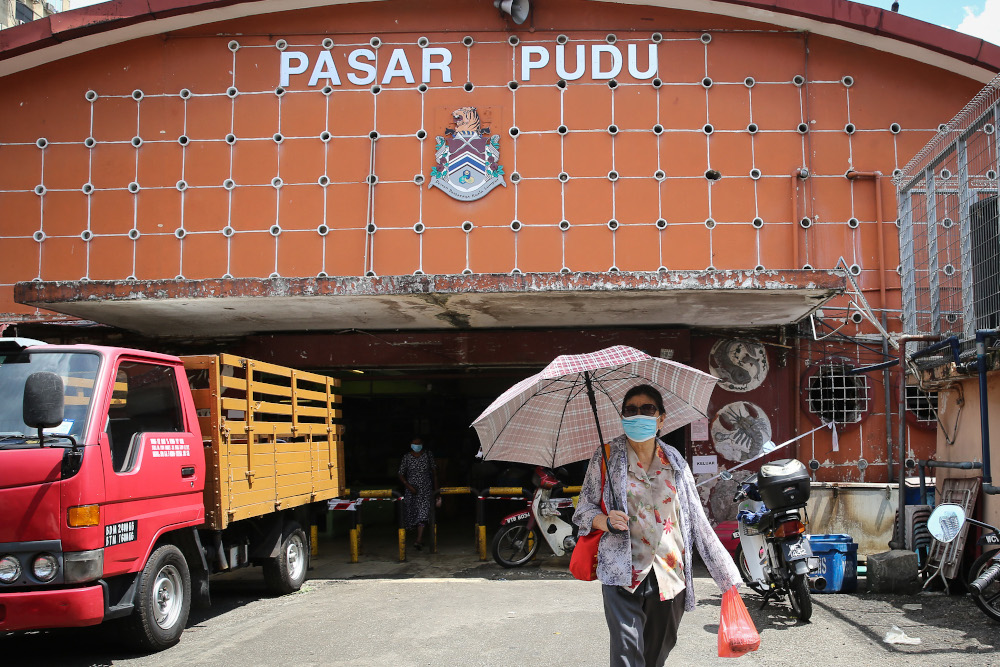KUALA LUMPUR, May 23 — The two women were standing on the sidewalk near the entrance to the infamous Pudu Market and updating each other on their “stay-at-home” situation under the conditional movement control order (CMCO).
If you closed your eyes, you’d think you were listening to snatches of a Hong Kong TVB drama.
Those 80s dramas so beloved of so many Malaysian households always revolved around money, relationships, making more money, family etc.
And these two Pudu homemakers were going on about how they wished they had enough money to shift out of Pudu and live the life of a “tai tai” aka a woman married into money and does not need to work.
“You are better off than me, I really envy you. You're almost there, soon you can shift out of this place,” said Madam Lee to Madam Wong.
When asked why they were so eager to move out, both these long-time residents of Pudu said, “These houses are so old. Who wants to live in them?”
Lee and Wong are two out of Pudu's 300,000-odd constituents who are eager to move out of the area, but when multiplied by more, it somewhat explains why many properties here are occupied by immigrants today.
If one were to take a walk along the street that runs parallel to the wet market, it is mostly immigrants from Bangladesh, Myanmar, Vietnam, Indonesia and Cambodia you will encounter. And their languages you will hear.
Even if Bahasa Malaysia is spoken, it is by immigrant workers talking to customers in the wet market.
.jpg)
Why has it come to this?
Elizabeth Tong, a third generation Malaysian who used to live in the area, said some owners grew too old and had no next of kin to bequeath their property to.
“Eventually they sold their houses to interested buyers who either turned them into restaurants or as you can see, rented them out to immigrants who work in the city centre ― either at the market or construction sites nearby,” Tong said.
As for Tong, staying in Pudu, an area which stretches between the Bukit Bintang and Cheras constituencies, became undesirable when the city centre started picking up more traffic.
“It became too hectic and because I had graduated from secondary school by then, we didn't have to live near the school anymore and so my parents said it was time to move to a more peaceful area,” she said, referring to Ampang where her family lives now.
Where Tong lived was a strategic location as they were close to both Bukit Bintang and many parts of the city centre.
“Slowly, one by one, our neighbours rented out their properties as accommodation for immigrant workers. Before you know it, we were surrounded by foreigners,” she said.

Finders’ keepers
For immigrants, living in the city centre is a great convenience, especially for those who spend more than 16 hours working at the Pudu Wet Market, restaurants in shopping malls and development projects in the vicinity.
It’s the ideal commute when your workplace is just walking distance from home.
It has been 15 years that Jamil has lived in a shophouse above his workplace.
“Accommodation is prepared by my agent. I have no complaints because right below is my workplace,” he said.
Besides, Jamil said immigrant workers like him are often harassed by local authorities and so he spends most of his time at the shop, working.
.jpg)
As for Md Billal Hossain Bhuiyan, a Bangladesh national, Pudu is where his journey to becoming a successful businessman in Malaysia started.
The 50-year-old, who is a permanent resident now, recalled how he first came to Malaysia to further his studies.
“I didn't manage to finish my studies because my parents could not afford to pay for tuition fees.
“But by then I was interested in starting my business and so I focused on finding a way to fulfill my dream,” he told Malay Mail.
The Pudu wet market holds many memories for Billal because that was where he first worked as a delivery boy for market traders.
He gradually learned the trade through his employers and eventually was able to set up his own vegetable stall.
“I worked very hard until I could finally afford to open my first supermarket outlet,” he said referring to Pasaraya Harian Bhuiyen that sells both fresh produce and essential goods, located off Jalan Pasar.
To date, Billal has 20 outlets in the Klang Valley and Seremban with a 700 staff count, and he also owns a poultry farm.
Shops for life
For those who are familiar with Pudu, apart from the wet market and the demolished Pudu Jail, what is left of the once Chinese-dominated township are popular eateries such as Sek Yuen, Chun Kei Hakka Noodles and the famous Pudu Wai Sek Kai (Pudu Food Street).
The printing shop rows on Jalan Brunei, traditional herb shops, sundry shops and a shop that sells prayer items are other familiar sights.

Sim Soom Hong, owner of the shop that sells prayer items, said long-time residents in Pudu have become acclimated to the drastic changes over the years, especially with the growing number of immigrants.
“Some of them have attitude problems and some are not very hygienic. But we've been 'neighbours' for so many years, we know each other well,” she said when met at her shop.
She added that immigrant workers in the area are a self-sustaining community and all they need is a roof over their heads after working such long days.
Overdevelopment in the area
Apart from food, Pudu's Jalan Pasar is also popular for electronic spare parts. In the 80s, Edith Yeoh used to follow her father to look for electrical parts in the area.
“I used to love Pudu very much, it was my playground. But I don't like it anymore because of the change in its landscape due to overdevelopment. It is unrecognisable,” she said.
Yeoh was referring to commercial projects which took over original Pudu structures; several pre-war shophouses and the old wet market area are gone.
“It was sometime in the early 2000s when the Pudu area went through a major redevelopment. Some of the pre-war shophouses were torn down and replaced with electronic shops.That was the beginning of the old Pudu being populated by foreigners,” said Yeoh.

A prominent building near the Pudu wet market is Richmoore Hotel which was built sometime in the early 2000s; it took over the old wet market area, Yeoh said.
She claims the hotel is a “vice hub.” A quick search on the Internet seems to confirm what Yeoh said, as to date illicit activities are trending even on Twitter and frequently spoken about by Twitter handle Ops Cantas Richmoore and its followers.
Another development project in the area is Bukit Bintang City Centre that is currently being built on the old Pudu Jail site. The former prison structure, which was built in 1891 by the British using convicts as the workforce, was reportedly built on a Chinese cemetery.
Today while many may have different opinions about Pudu, it has “gained” one new bit of infamy: a Covid-19 red zone, after it recorded 56 positive cases which led to parts of Pudu marked as off limits to the public.
Several parts of Pudu including Jalan Brunei were cordoned off on May 15 to make way for Covid-19 screening exercises and residents, traders and workers all had swab samples taken.




















